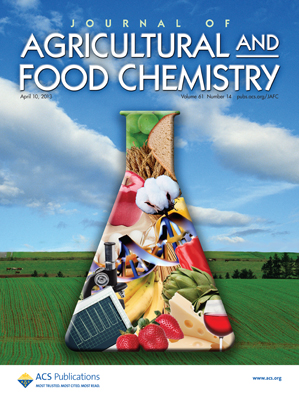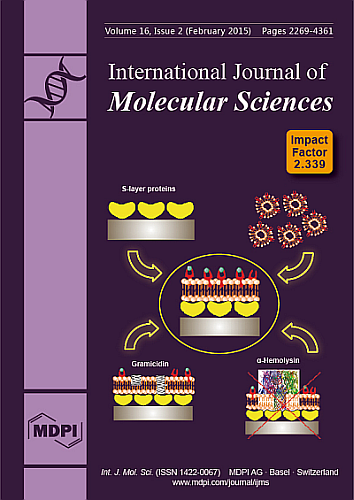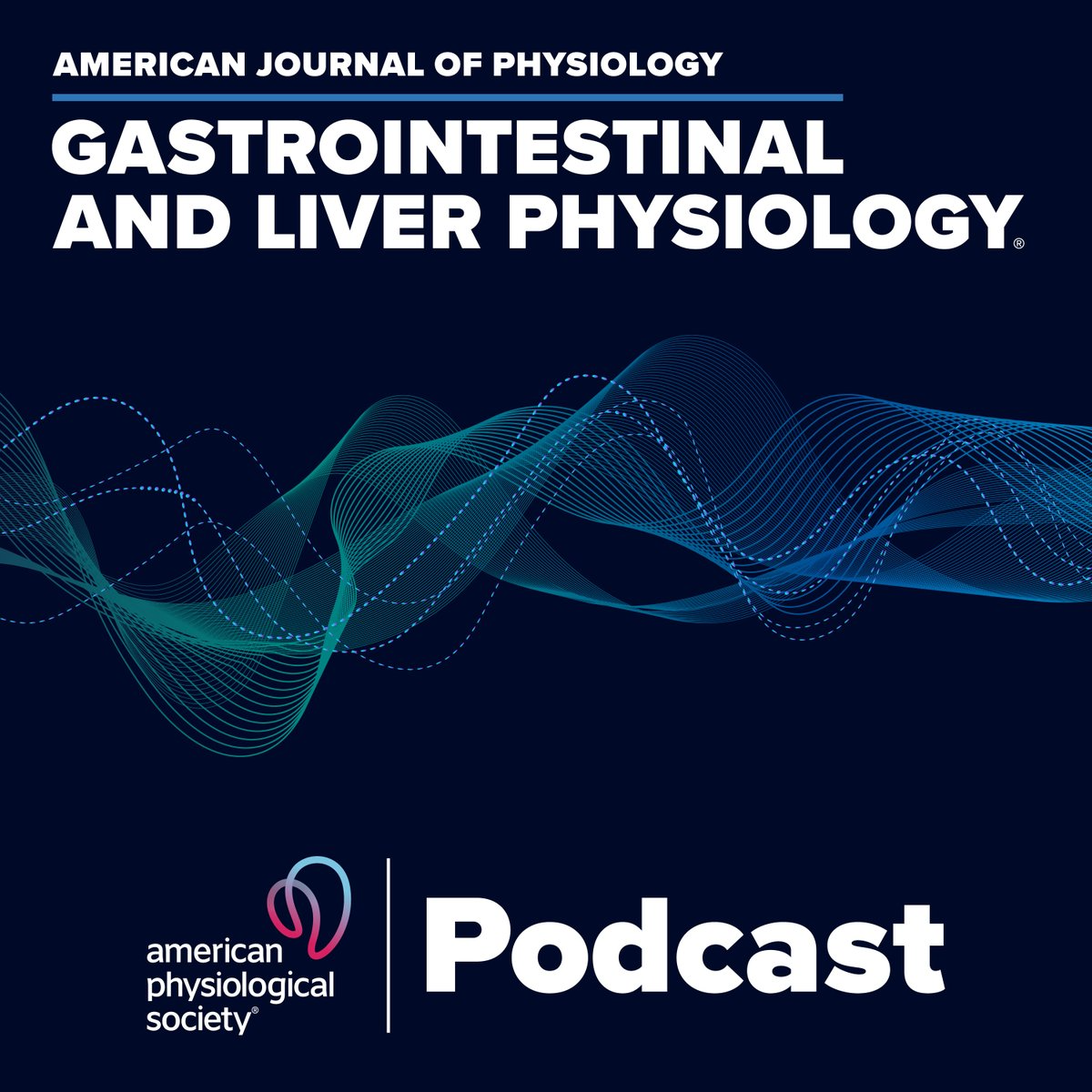Intestinal Inflammation
How to submit an article:
- Registered users can submit any published journal article that has a unique DOI (Digital Object Identifier) name or link to Research Hub.
- For example, you can paste the full DOI link:
https://doi.org/10.1109/5.771073or just the DOI name:10.1109/5.771073into the field above and click submit. - The person who is first to submit a valid article to Research Hub will forever be credited for it, and every article submission earns you +6 Research Points.
Published research studies are articles that present the findings of original research that has undergone a peer-review process and has been made publicly available in scholarly journals, books or other media.

Carrageenan as a Potential Factor of Inflammatory Bowel Diseases
2024 Apr 30 Nutrients Komisarska P, Pinyosinwat A, Saleem M, Szczuko M
Animal Study Inflammatory Bowel Diseases CarrageenanCarrageenan, a common food additive, has dual aspects, being both useful in drug delivery and food printing, while potentially harmful via inducing intestinal inflammatory conditions.

Pu-erh Tea Restored Circadian Rhythm Disruption by Regulating Tryptophan Metabolism
2022 Apr 27 Journal of Agricultural and Food Chemistry Hu S, Luo L, Bian X, Liu RH, Zhao S, Chen Y, et al.
Experimental Study Animal Study Pu-Erh Tea Circadian Rhythm Intestinal Inflammation CholesterolPu-erh tea may prevent circadian rhythm disorders by promoting tryptophan metabolism and signaling interactions in the gut-liver-brain axis.

Efficacy and Safety of Probiotics Combined With Traditional Chinese Medicine for Ulcerative Colitis: A Systematic Review and Meta-Analysis
2022 Mar 07 Frontiers in Pharmacology Hu Y, Ye Z, She Y, Li L, Wu M, Qin K, et al.
Meta-Analysis Systematic Review Probiotic Crohn's DiseaseProbiotics combined with traditional Chinese medicine have shown higher rates of efficiency in the treatment of ulcerative colitis than when each is used individually.

Beneficial Effects of Natural Mineral Waters on Intestinal Inflammation and the Mucosa-Associated Microbiota
2021 Apr 21 International Journal of Molecular Sciences Barnich N, Rodrigues M, Sauvanet P, Chevarin C, Denis S, Le Goff O, et al.
Experimental Study Animal Study Digestive Health Mineral Water Gut Microbiota ColitisTwo French natural mineral waters (NMW1 and NMW2) show anti-inflammatory effects and can reduce intestinal inflammation in mice with induced colitis.

Selenium and inflammatory bowel disease
2015 Jul 15 American Journal of Physiology-Gastrointestinal and Liver Physiology Kudva AK, Shay AE, Prabhu KS
Selenium, incorporated into selenoproteins, plays a pivotal role in the modulation of gastrointestinal inflammation by influencing macrophage function and driving a switch from a proinflammatory to an anti-inflammatory phenotype. This phenotypic plasticity, accompanied by changes in cytokines, chemokines, and bioactive metabolites, contributes to the resolution of inflammation in the gut and restoration of epithelial barrier integrity. The review highlights the importance of selenium-dependent regulation of arachidonic acid metabolism and emphasizes the role of macrophages in supporting resolution in IBD.
Theoretical Article Review Article Selenium Irritable Bowel SyndromeResearch insights are moderated by the Research Hub team and offer an at-a-glance overview of interesting research findings.

2024 Nutrients
Carrageenan, a common food additive, has dual aspects, being both useful in drug delivery and food printing, while potentially harmful via inducing intestinal inflammatory conditions.
Animal Study Carrageenan Inflammatory Bowel Diseases
Carrageenan as a Potential Factor of Inflammatory Bowel Diseases
Komisarska P, Pinyosinwat A, Saleem M, Szczuko M

2022 Journal of Agricultural and Food Chemistry
Pu-erh tea may prevent circadian rhythm disorders by promoting tryptophan metabolism and signaling interactions in the gut-liver-brain axis.
Experimental Study Cholesterol Circadian Rhythm Pu-Erh Tea
Pu-erh Tea Restored Circadian Rhythm Disruption by Regulating Tryptophan Metabolism
Hu S, Luo L, Bian X, Liu RH, Zhao S, Chen Y, et al.

2022 Frontiers in Pharmacology
Probiotics combined with traditional Chinese medicine have shown higher rates of efficiency in the treatment of ulcerative colitis than when each is used individually.
Meta-Analysis Crohn's Disease Probiotic
Efficacy and Safety of Probiotics Combined With Traditional Chinese Medicine for Ulcerative Colitis: A Systematic Review and Meta-Analysis
Hu Y, Ye Z, She Y, Li L, Wu M, Qin K, et al.

2021 International Journal of Molecular Sciences
Two French natural mineral waters (NMW1 and NMW2) show anti-inflammatory effects and can reduce intestinal inflammation in mice with induced colitis.
Experimental Study Colitis Digestive Health Gut Microbiota Mineral Water
Beneficial Effects of Natural Mineral Waters on Intestinal Inflammation and the Mucosa-Associated Microbiota
Barnich N, Rodrigues M, Sauvanet P, Chevarin C, Denis S, Le Goff O, et al.
Review Articles
Review articles summarise and critically evaluate the current state of research on a specific topic or field by synthesising multiple primary research studies.

Efficacy and Safety of Probiotics Combined With Traditional Chinese Medicine for Ulcerative Colitis: A Systematic Review and Meta-Analysis
2022 Mar 07 Frontiers in Pharmacology Hu Y, Ye Z, She Y, Li L, Wu M, Qin K, et al.
Meta-Analysis Systematic Review Probiotic Crohn's DiseaseProbiotics combined with traditional Chinese medicine have shown higher rates of efficiency in the treatment of ulcerative colitis than when each is used individually.

Selenium and inflammatory bowel disease
2015 Jul 15 American Journal of Physiology-Gastrointestinal and Liver Physiology Kudva AK, Shay AE, Prabhu KS
Selenium, incorporated into selenoproteins, plays a pivotal role in the modulation of gastrointestinal inflammation by influencing macrophage function and driving a switch from a proinflammatory to an anti-inflammatory phenotype. This phenotypic plasticity, accompanied by changes in cytokines, chemokines, and bioactive metabolites, contributes to the resolution of inflammation in the gut and restoration of epithelial barrier integrity. The review highlights the importance of selenium-dependent regulation of arachidonic acid metabolism and emphasizes the role of macrophages in supporting resolution in IBD.
Theoretical Article Review Article Selenium Irritable Bowel SyndromeClinical Trials
Clinical trials are research studies that involve people and are conducted to evaluate the safety and efficacy of new treatments or interventions, such as drugs, medical devices, or behavioural therapies.
Study Protocols
Published study protocols are detailed plans that outline the objectives, methodology, statistical analyses, and organisation of a research study that have been made publicly available for others to review and use as a reference.
Presentation Slides

Animal Study
Carrageenan, a common food additive, has dual aspects, being both useful in drug delivery and food printing, while potentially harmful via inducing intestinal inflammatory conditions.
Komisarska P, Pinyosinwat A, Saleem M, Szczuko M

Experimental Study
Pu-erh tea may prevent circadian rhythm disorders by promoting tryptophan metabolism and signaling interactions in the gut-liver-brain axis.
Hu S, Luo L, Bian X, Liu RH, Zhao S, Chen Y, Sun K, Jiang J, Liu Z, Zeng L

Meta-Analysis
Probiotics combined with traditional Chinese medicine have shown higher rates of efficiency in the treatment of ulcerative colitis than when each is used individually.
Hu Y, Ye Z, She Y, Li L, Wu M, Qin K, Li Y, He H, Hu Z, Yang M, Lu F, Ye Q

Experimental Study
Two French natural mineral waters (NMW1 and NMW2) show anti-inflammatory effects and can reduce intestinal inflammation in mice with induced colitis.
Barnich N, Rodrigues M, Sauvanet P, Chevarin C, Denis S, Le Goff O, Faure-Imbert D, Hanh T, Roques CF, Chassaing B, Alric M
Executive Summary
Write an executive summary in the form of a blog article on the topic of "Research into Chinese medicine treatment for Intestinal Inflammation" summarising the research below and using language that can be easily understood by patients and avoiding medical jargon using a professional and caring tone of voice.
Write an executive summary in the form of a blog article on the topic of "Researched Chinese medicine treatments for Intestinal Inflammation" summarising the research below in an objective and easy to understand way, and using language that can be easily understood by patients. Group the article into Chinese medicine treatments first, followed by nutrition and other treatments. Avoid using medical jargon and use a professional and caring tone of voice.
Write me a concise but easy to understand executive summary on the topic of "Chinese medicine treatments for Intestinal Inflammation" based on the following research that I will give you. Your summary should be 2 paragraphs long in Australian English spelling and include references to the studies.
A Animal Study published in 2024 in the journal Nutrients found that Carrageenan, a common food additive, has dual aspects, being both useful in drug delivery and food printing, while potentially harmful via inducing intestinal inflammatory conditions. This study investigates the dual roles of carrageenan, a naturally occurring polysaccharide. It is used in creating edible films and encapsulating drugs, and has potential uses in food printing. Moreover, it can regulate the composition of intestinal microflora, including promoting the increase of Bifidobacterium bacteria. The research shines a light on the harmful side of carrageenan as well by focusing on its interactive effects with intestinal microflora, mucous barrier, and proinflammatory pathways. The study reveals that carrageenan negatively alters intestinal microflora, triggering a breakdown of the mucus barrier, leading to an inflammatory response. This response occurs due to activation of the pro-inflammatory nuclear factor kappa-light-chain-enhancer pathway in the epithelial cells, likely via the mechanism of TLR4 receptor activation, alteration in macrophage activity, production of proinflammatory cytokines, and activation of innate immune pathways. Carrageenan's influence also led to increased levels of Bacteroidetes bacteria, alongside reducing short-chain fatty acid-producing bacteria, ultimately damaging the integrity of the intestinal membrane and reducing the mucin layer. The study finds that those with intestinal inflammation disorders, like Crohn's disease and ulcerative colitis, are particularly vulnerable to these harmful effects.
A Experimental Study published in 2022 in the journal Journal of Agricultural and Food Chemistry found that Pu-erh tea may prevent circadian rhythm disorders by promoting tryptophan metabolism and signaling interactions in the gut-liver-brain axis. Healthy mice were administered water or 0.25% Pu-erh tea over a period of seven weeks, and then subjected to a disruption of their light/dark cycle for forty days. The assessment of effects was based on changes in neurotransmitter secretion and gene oscillations, intestinal inflammation, and the balance of intestinal microbes and metabolites. Results indicated that Pu-erh tea had beneficial impacts in regulating neurotransmitter secretion and clock gene oscillations, especially indole and 5-hydroxytryptamine pathways, a key process involving the gut-liver-brain axis. Moreover, the tea's metabolites improved release of brain hormones, thus enhancing hepatic glycolipid metabolism and lowering intestinal oxidative stress. Further observed beneficial effects included promotion of liver lipid metabolism and reduction of intestinal inflammation, via the enterohepatic circulation.
A Meta-Analysis published in 2022 in the journal Frontiers in Pharmacology found that Probiotics combined with traditional Chinese medicine have shown higher rates of efficiency in the treatment of ulcerative colitis than when each is used individually. For the methodology, the researchers utilized a comprehensive search of multiple databases such as Pubmed, EMBASE, Cochrane library, China Academic Journals, Wan-fang database, Chinese biomedical literature service system, and Chinese Science and Technology Journals. They designed subgroup analysis in alignment with distinct control drugs, treatment lengths, and types of probiotics, using Review Manager software for statistical analysis. In discussing the results, the study analyzed fourteen original studies containing over a thousand patients. It concluded that the combination of probiotics with traditional Chinese medicine was more effective than 5-aminosalicylic acid, probiotics, or traditional Chinese medicine used individually. Further, this combination was found to suppress intestinal inflammation, diminish the frequency of recurrence, and lower the occurrence of adverse events. The results indicated that a mixture of different probiotics was more effective than a single strain.
A Experimental Study published in 2021 in the journal International Journal of Molecular Sciences found that Two French natural mineral waters (NMW1 and NMW2) show anti-inflammatory effects and can reduce intestinal inflammation in mice with induced colitis. The study investigated the anti-inflammatory effects of two French natural mineral waters (NMWs) - NMW1 (rich in calcium, magnesium, sodium, carbon, and iron) and NMW2 (mainly bicarbonate) - on intestinal inflammation. Intestinal epithelial cells were stimulated with heat-inactivated Escherichia coli or hydrogen peroxide and then treated with NMWs. Additionally, moderate colitis was induced in Balbc/J mice using 1% dextran sulfate sodium. These mice were then given either NMW1, NMW2, or control water. The study assessed general symptoms, histological features of colitis, fecal lipocalin-2 levels, pro-inflammatory KC cytokine levels, and the global mucosa-associated microbiota. Both NMW1 and NMW2 showed anti-inflammatory effects in treated intestinal cells. In the colitis-induced mice, NMW1 notably reduced inflammation, evidenced by lower disease activity scores, reduced fecal lipocalin-2, decreased release of pro-inflammatory KC cytokines, and smaller intestinal epithelial lesions. NMW1 also helped in maintaining the normal state of mucosa-associated microbiota. These findings suggest the potential of these NMWs in managing inflammatory bowel disease through modulating gut microbiota.
Moderation Tools
Topic
Sign In
Users not signed in are limited to viewing the 5 most recent items of content.